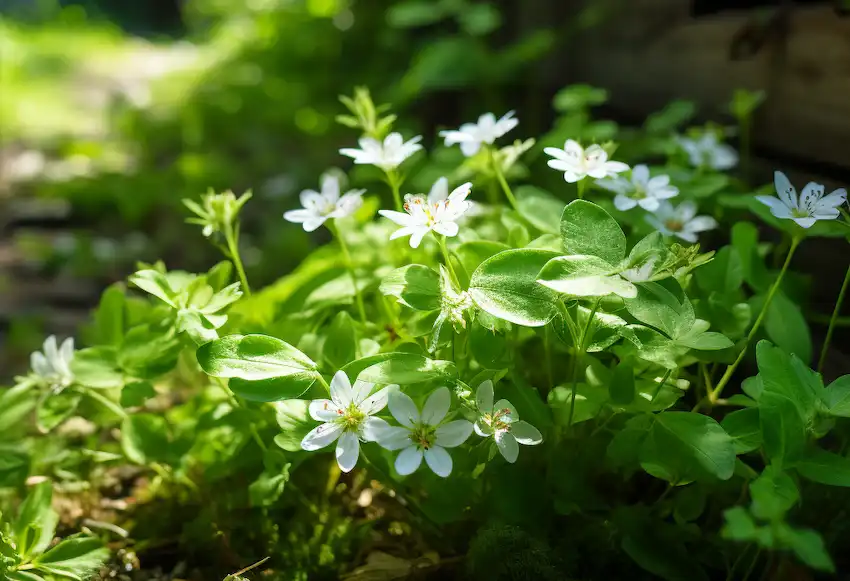Chickweed (Stellaria media): A Comprehensive Guide to Its Benefits and Uses
Chickweed, often considered a common weed, is a powerful herb with a wealth of health and medicinal benefits. With its delicate white flowers and vibrant green leaves, this versatile plant has been a staple in traditional medicine and is gaining recognition in modern wellness practices. Here’s an in-depth look at the many ways chickweed can enhance your health and how to use it effectively.
Health and Medical Benefits of Chickweed
1. Nutritional Support
- Rich in Nutrients: Chickweed is packed with essential nutrients, including calcium, magnesium, vitamin C, and vitamin A. These contribute to overall skeletal health, skin health, and immune support.
2. Anti-inflammatory and Pain Relief
- Traditional Uses: Chickweed has been used to alleviate symptoms of rheumatism, arthritis, PMS, and various digestive and respiratory issues.
- Application: It can be consumed as tea, tincture, or applied topically to inflamed areas for relief.
3. Digestive and Gut Health
- Digestive Aid: The herb supports digestive health with its antioxidant properties and fiber content.
- Weight Management: Chickweed may aid in weight loss by affecting the intestinal absorption of fats and carbohydrates.
4. Skin Health
- Treatment for Skin Conditions: Its anti-inflammatory, astringent, and emollient properties make it effective for treating eczema, psoriasis, rashes, and other skin issues.
- Application Forms: Use chickweed in salves, teas, or tinctures for soothing skin treatments.
5. Respiratory Health
- Expectorant Properties: Chickweed contains saponins that act as natural expectorants, aiding in the treatment of coughs, colds, sinus congestion, and bronchitis.
6. Wound Healing and Antiseptic Properties
- Healing Benefits: Chickweed promotes wound healing, reduces irritation, and helps prevent infections when applied to cuts, burns, and grazes.
7. Lymphatic and Immune Support
- Immune System Booster: Compounds like coumarin in chickweed may support the lymphatic system and enhance overall immune function.
Using Chickweed
1. Infusions or Teas
- Preparation: Steep fresh or dried chickweed leaves in hot water for a few minutes.
- Benefits: Consume for digestive and respiratory support.
2. Topical Applications
- Poultice: Mash fresh chickweed leaves and apply to skin conditions or joint pain.
- Salve or Compress: Use chickweed in topical formulations for skin ailments and inflammation.
3. Culinary Uses
- Fresh Leaves: Add to salads, soups, or other dishes for a nutritional boost and a mild, fresh flavor.
Safety and Precautions
1. Pregnancy and Breastfeeding
- Caution: Due to limited safety data, chickweed is not recommended during pregnancy or breastfeeding.
2. Allergic Reactions
- Potential Issues: Some individuals may experience contact dermatitis or gastrointestinal distress, particularly those allergic to plants in the daisy family.
3. Dosage
- Recommended Use: Follow suggested dosages to avoid potential side effects, especially when using chickweed as a supplement.
Sustainability
- Cultivation: Chickweed is not endangered and is easily cultivated, making it a sustainable option for those interested in herbal remedies.
Chickweed stands out as a natural remedy with a broad spectrum of benefits, particularly for skin, digestive, and respiratory health. When used appropriately, it can be a safe and effective addition to your holistic health practices. Remember to consider any potential side effects and use chickweed responsibly, especially during sensitive periods such as pregnancy or breastfeeding. With its rich history and wide-ranging applications, chickweed continues to be a valuable ally in natural wellness.

